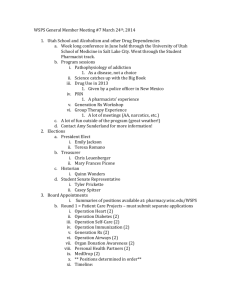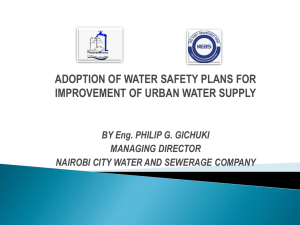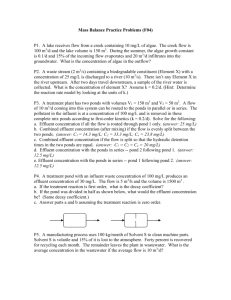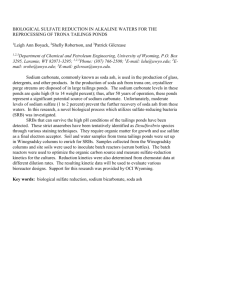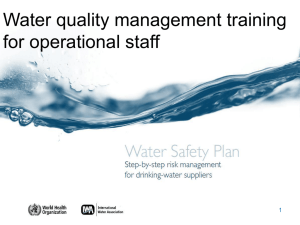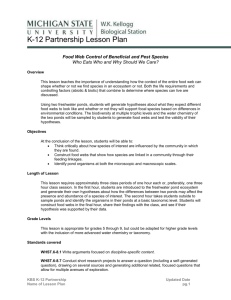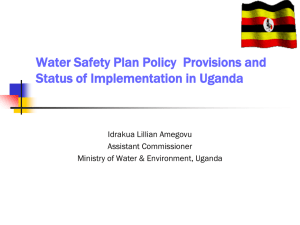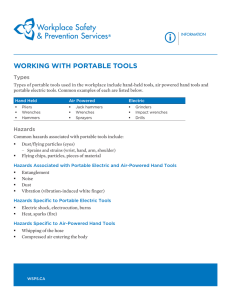Development of low-cost methods for treatment and reuse of
advertisement
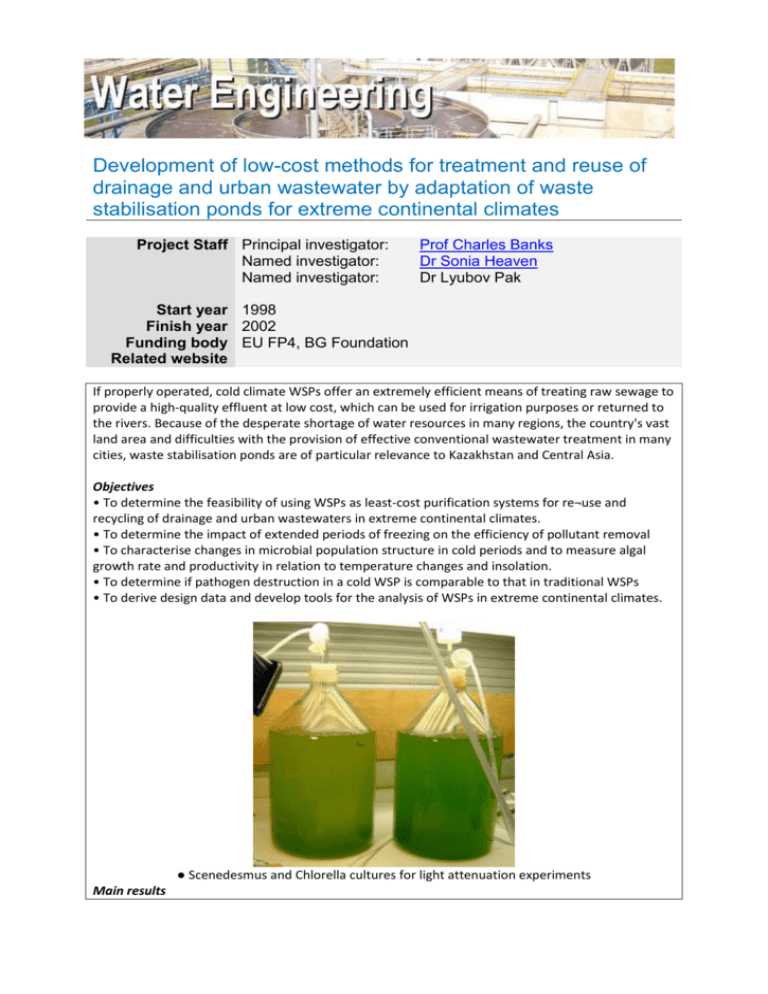
Development of low-cost methods for treatment and reuse of drainage and urban wastewater by adaptation of waste stabilisation ponds for extreme continental climates Project Staff Principal investigator: Named investigator: Named investigator: Prof Charles Banks Dr Sonia Heaven Dr Lyubov Pak Start year 1998 Finish year 2002 Funding body EU FP4, BG Foundation Related website If properly operated, cold climate WSPs offer an extremely efficient means of treating raw sewage to provide a high-quality effluent at low cost, which can be used for irrigation purposes or returned to the rivers. Because of the desperate shortage of water resources in many regions, the country's vast land area and difficulties with the provision of effective conventional wastewater treatment in many cities, waste stabilisation ponds are of particular relevance to Kazakhstan and Central Asia. Objectives • To determine the feasibility of using WSPs as least-cost purification systems for re¬use and recycling of drainage and urban wastewaters in extreme continental climates. • To determine the impact of extended periods of freezing on the efficiency of pollutant removal • To characterise changes in microbial population structure in cold periods and to measure algal growth rate and productivity in relation to temperature changes and insolation. • To determine if pathogen destruction in a cold WSP is comparable to that in traditional WSPs • To derive design data and develop tools for the analysis of WSPs in extreme continental climates. ● Scenedesmus and Chlorella cultures for light attenuation experiments Main results Work with pure algal cultures established growth-limiting conditions and kinetic coefficients for modelling. Observation of mixed algal cultures from experimental ponds showed species diversity and biomass density similar to conventional WSPs in summer, with algae surviving over winter to provide an inoculum for rapid regeneration in spring. It is clear that extreme climate WSPs can produce effluent of very good chemical quality at realistic loading rates. Strong evidence suggests, however, that in cold conditions wastewater can harbour a residual population of pathogenic microorganisms, especially viral particles. A model was developed to predict WSP behaviour during critical periods of temperature transition, as well as in steady state operation. In addition to research use, the model has the potential for application as a design tool in the near future. As a result of the work, there is now a more rational basis for the design, operation and regulation of extreme climate WSPs. ● Experimental ponds in Southampton ● Pilot ponds in Almaty, Kazakhstan Results of this highly successful project are being disseminated through papers and publications. The model is available on the websites of AIPET and Southampton University. The microbiological findings will be of interest to the World Health Organisation and similar bodies responsible for national and international water quality standards. There has been considerable external interest from industrial and other enterprises, and technical papers have been sent out. The ‘know how’ associated with the project will be available via direct advice and consultancy to industry. Collaborators School of Civil Engineering & the Environment, University of Southampton, UK (Soton) Departamento de Genética y Microbiología, Universidad de Murcia, Spain BG Chair of Environmental Technology, AIPET, Kazakhstan AGPO Vodokanal, Almaty, Kazakhstan Publications Heaven S, Banks CJ, (2005) "Ponds in cold climates" In Pond Treatment Technology. Ed Andrew Shilton (ed), IWA Publishing, London, Uk 381-407 Banks CJ, Heaven S, Zotova E. A, (2004) "Some observations on the effects of accumulated benthic sludge on the behaviour of waste stabilisation ponds" IWA 6th Int Conf on Waste Stabilisation Ponds, Avignon 28 Sept - 1 Oct 2004 157-165 Heaven S, Banks CJ, Zotova E. A, (2004) "Light attenuation parameters for waste stabilisation ponds" IWA 6th Int Conf on Waste Stabilisation Ponds, Avignon 28 Sept - 1 Oct 2004 337-345 Heaven S, Pak LN, McGuinness A.M.G., Waters D.P., (2004) "Wastewater collector reservoirs in Kazakhstan: the Sorbulak system" Procs 2nd National CIWEM Conference, Wakefield, September 2004 301-310 Lapshina E. A., Heaven S, Banks CJ, (2004) "Anaerobic digestion of WSP sludges at low temperatures" IWA Young Researchers' Conference 2004, Southampton UK

